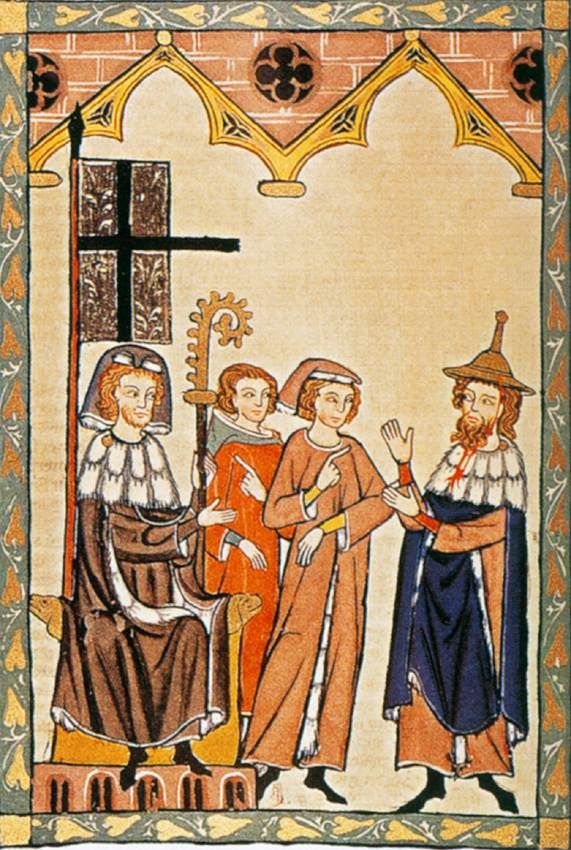
Employment of Jews and Muslims
Beregsurány, HungaryAndrew employed Jews and Muslims to administer royal revenues, which caused a discord between Andrew and the Holy See starting in the early 1220s. Pope Honorius urged Andrew and Queen Yolanda to prohibit Muslims from employing Christians. Archbishop Robert excommunicated Palatine Denis and put Hungary under an interdict on 25 February 1232, because the employment of Jews and Muslims continued despite the Golden Bull of 1231. Since the archbishop accused the Muslims of persuading Andrew to seize church property, Andrew restored properties to the archbishop, who soon suspended the interdict.
On 20 August 1233, in the forests of Bereg, he vowed that he would not employ Jews and Muslims to administrate royal revenues, and would pay 10,000 marks as compensation for usurped Church revenues.
John, Bishop of Bosnia, put Hungary under a new interdict in the first half of 1234, because Andrew had not dismissed his non-Christian officials despite his oath of Bereg.
